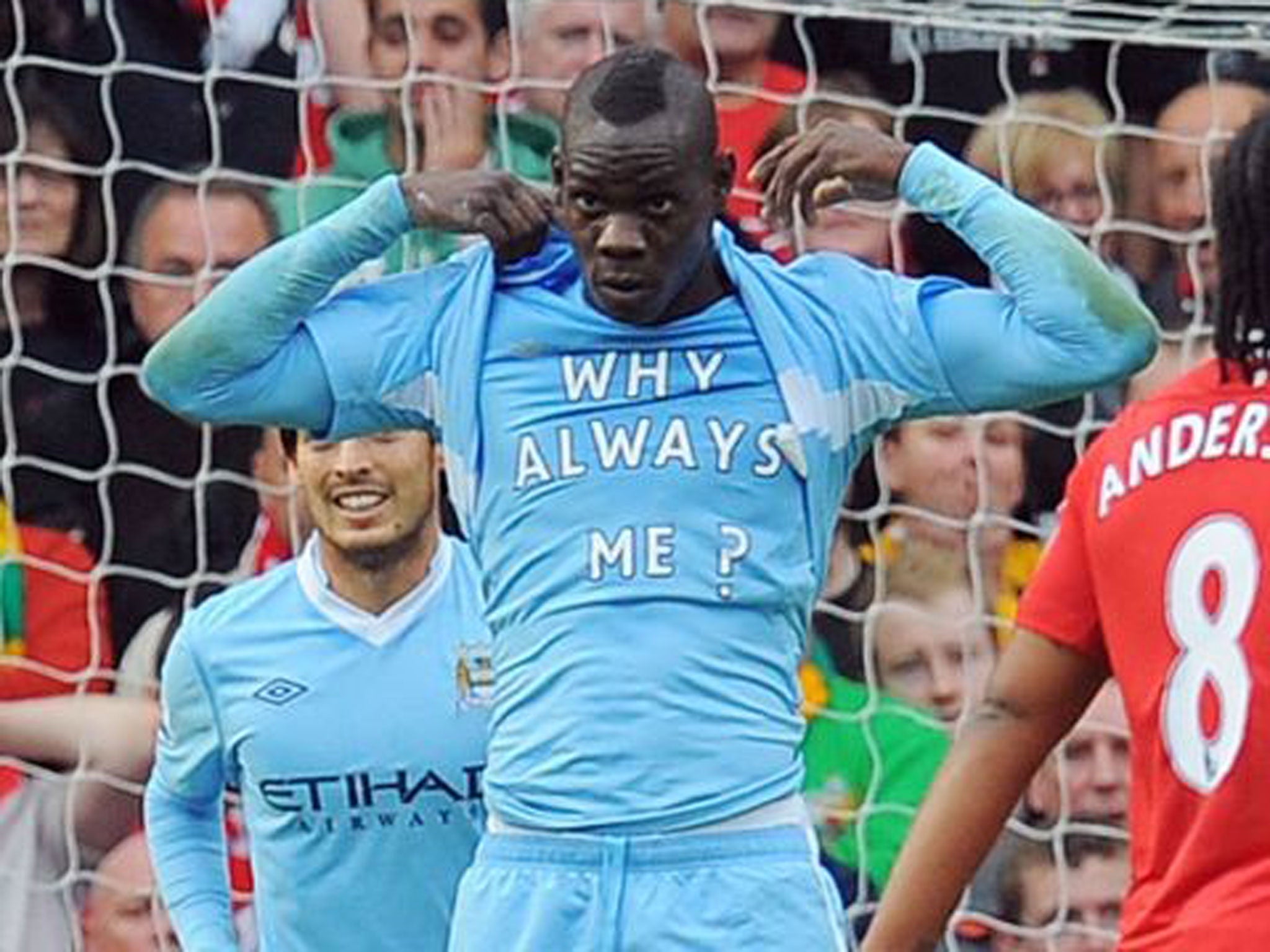Banned: Ifab get shirty over slogans on vests
New rule outlaws the display of all messages, however well intended

Your support helps us to tell the story
From reproductive rights to climate change to Big Tech, The Independent is on the ground when the story is developing. Whether it's investigating the financials of Elon Musk's pro-Trump PAC or producing our latest documentary, 'The A Word', which shines a light on the American women fighting for reproductive rights, we know how important it is to parse out the facts from the messaging.
At such a critical moment in US history, we need reporters on the ground. Your donation allows us to keep sending journalists to speak to both sides of the story.
The Independent is trusted by Americans across the entire political spectrum. And unlike many other quality news outlets, we choose not to lock Americans out of our reporting and analysis with paywalls. We believe quality journalism should be available to everyone, paid for by those who can afford it.
Your support makes all the difference.In a move that seems bound to be construed as somewhat churlish, football’s lawmakers yesterday banned players from displaying any messages on their undergarments, even if they are innocent, charitable symbols.
From 1 June, in other words before the start of the World Cup, players will be barred from displaying personal slogans and it will be up to competition authorities to decide what action to take if the rule is broken.
Overt slogans have long been banned by Fifa but players often lift up their shirts after scoring to show other messages such as Mario Balotelli’s famous “why always me”. But these will no longer be allowed.
“From now on there can be no slogan or image whatsoever on undergarments, even good-natured ones,” said Fifa secretary general Jerome Valcke after the English proposal was accepted by the International FA Board.
Jonathan Ford, chief executive of the Welsh FA, accepted that an outright ban might be considered “a little bit churlish” but said there were more reasons to impose the ban than to retain the status quo.
“Everyone agreed about political or religious statements but on personal statements some of us did consider how far are we going,” said Ford. “But we decided it was easier for us to say it has no place in the game. With all the different languages in football, how you determine what is right and wrong between different countries and cultures is very complicated.”
Personal messages on shirts have been used by players to pay tribute to deceased colleagues, as well as light-hearted or humanitarian slogans. But defending the ban, Football Association chief executive Alex Horne said: “The idea is to get some consistency. The simplest rule for the image of the game is to start from the basis that slogans will not be allowed.”
Meanwhile, Uefa boss Michel Platini’s campaign to scrap the so-called triple punishment imposed on players who deliberately prevent a goalscoring opportunity – penalty, dismissal and suspension – fell on deaf ears as Ifab refused to change the law. Arsenal and Manchester City were recent victims in the Champions’ League but Ifab members rejected proposals to re-word the rules in order to provide fresh interpretation.
Ifab, which comprises Fifa and the four British associations, needs six votes out of eight to approve law change and Platini’s recommendation – increasingly supported by fans and managers who consider the existing law too punitive – didn’t get it.
Instead, lawmakers deferred the issue to their two advisory football and technical panels for a more detailed look at what can be done to make referees interpret the rule with more consistency and clarity.
“There was a lot of discussion that the proposal would increase the potential for cynical fouls so the request from Uefa was not approved,” said Valcke. “It has been decided that the advisory panels will discuss it and see if there is any way to end this discussion once and for all.”
Horne explained why the triple punishment needed to be enforced. “It was introduced post the 1990 World Cup to stop cynical tackles and all of us felt that taking Uefa’s wording carte blanche would reopen the door to cynical fouls,” he said.
“This isn’t to say we don’t understand the issues. We had a long debate about whether we could reinterpret what constitutes a ‘goalscoring opportunity’. That is clearly a red card offence. We think our decision is the right thing to do... we should remove it only very, very cautiously.”
Stewart Regan, chief executive of the Scottish Football Association, echoed Horne’s comments. “There are problems in trying to deliver more consistency because we do accept that mistakes are made in the application of the rule,” he said. “But denying an obvious goalscoring opportunity is a red card offence... and the referee has to make that decision.
“It’s such an important and emotive topic for players and clubs that we don’t want to flip-flop back to where it was. There were cynical tackles, particularly by goalkeepers, and if they know they cannot be sent off they will simply take out the attacker. When you have a situation like that, sometimes a penalty is a more difficult task [than an open goal].
“We know it’s a major topic the football community feels strongly about but it is so complex and will have such an impact that we’ve got to get it right.”
The idea of rugby-style sin-bins was also referred to Ifab’s two advisory panels for further investigation. Video replays, strangely on the agenda despite Fifa being firmly opposed, were kicked into touch when Valcke forcefully declared they would never follow goalline technology into the rule book – a timely reminder with the World Cup just around the corner.
Join our commenting forum
Join thought-provoking conversations, follow other Independent readers and see their replies
Comments